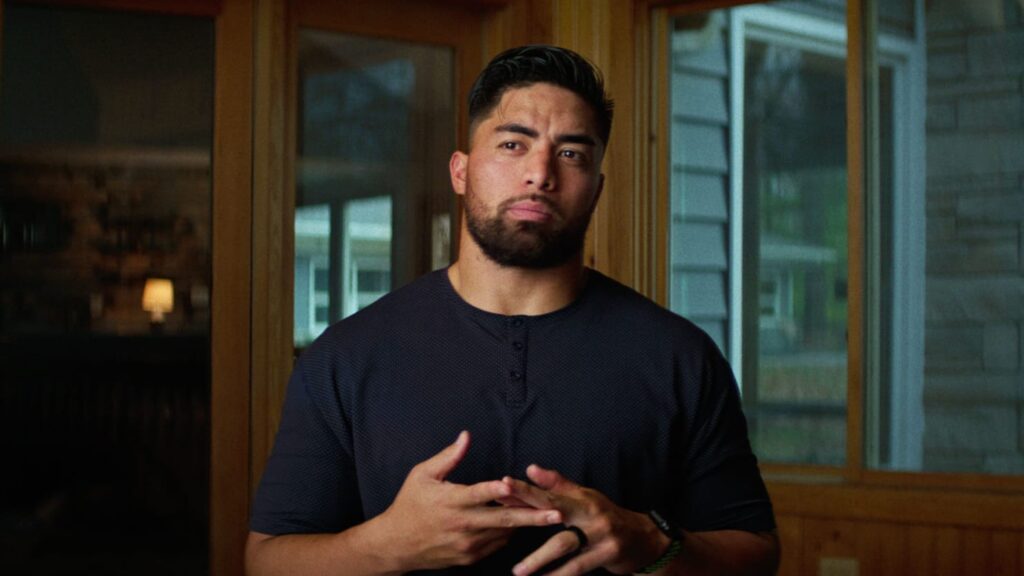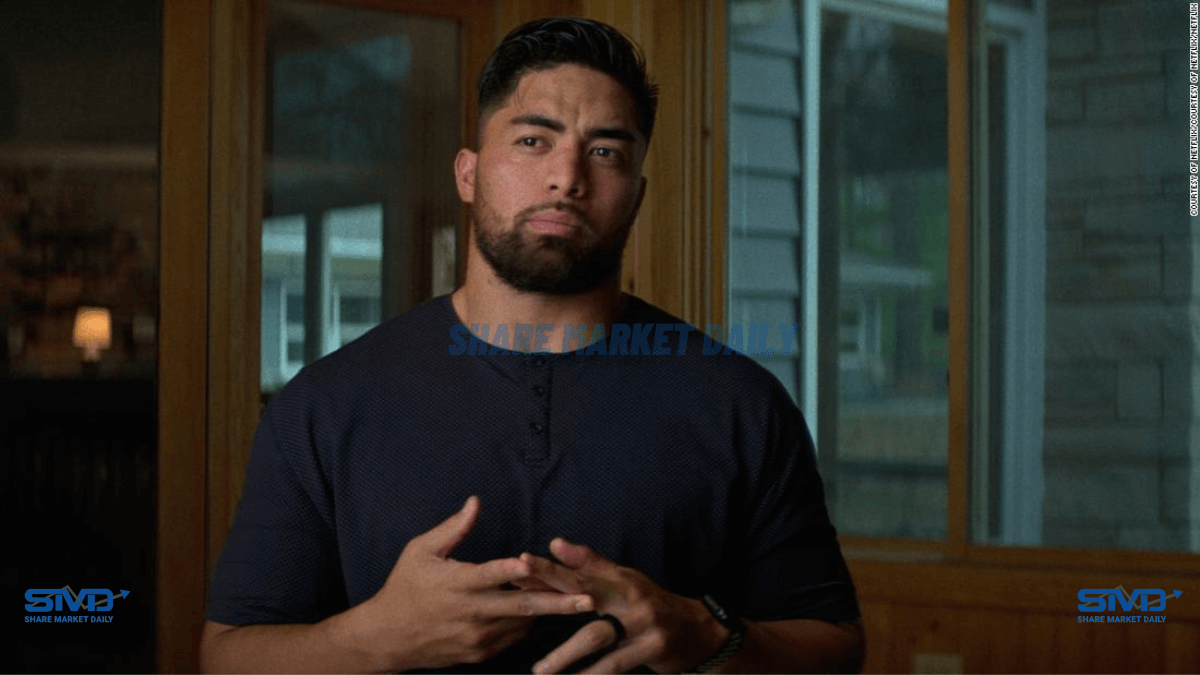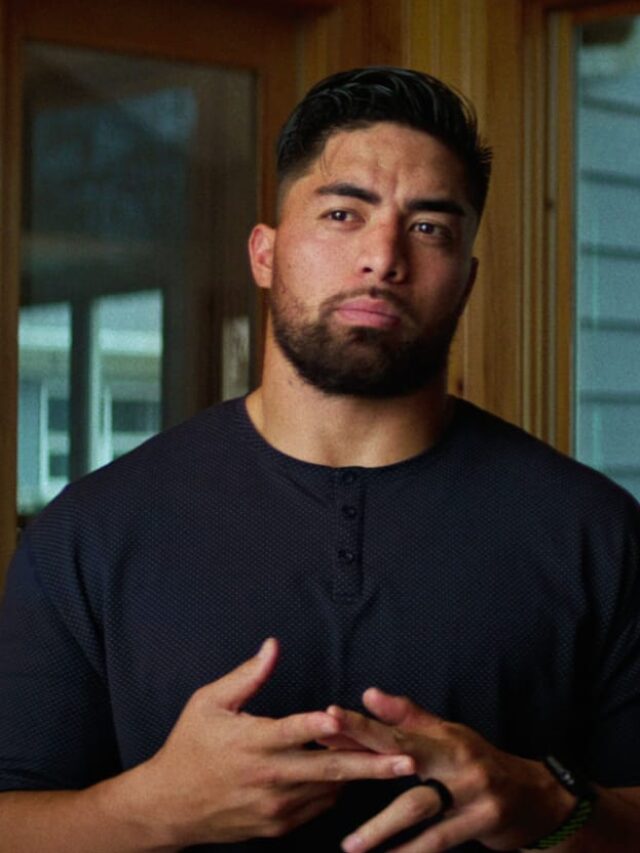Netflix’s ‘untold’ Team Reframed The Manti Te’o Girlfriend Hoax In A Way That People Could Understand
He was an all-around star in high school. He was beloved by everyone around him, and he was on his way to a full football scholarship at the University of Notre Dame.
His Hawaii hometown regarded him as the golden boy, a person who was active in his faith and easy to get along with.
It was then that tragedy struck. There was the death of his grandma, then the death of his girlfriend. They both happened on the same day.
The only difference is that his girlfriend did not actually die in the end. It was discovered by the media that he did not even have a girlfriend.
It was a catfish all along, with Ronaiah ‘Naya’ Tuiasosopo, the woman behind the hoax, caught in the middle of it all.
This is the story of Te’o, Tuiasosopo, and the elaborate 2013 hoax that is the subject of a new two-part Netflix documentary produced by Ryan Duffy and Tony Vainuku, entitled “Untold: The Girlfriend Who Didn’t Exist.
In fact, the story of Te’o and his fake girlfriend is one of the best known in the world, but it is less well known than that of Tuiasosopo – who created the fictional girlfriend in order to cope with her own gender dysphoria. Since then, Tuiasosopo has come out as a transgender woman.
It is likely that audiences will recognize Te’o’s name first, but the documentary actually opens with Tuiasosopo’s name.
Her role takes a central role in both episodes, bringing audiences along on her journey of self-discovery and gender identity, which is shaped in part by her experience catfishing Te’o during the first episode.
The “Untold” series was created by Maclain Way, along with his brother Chapman, and the pair discussed how the team was able to portray Tuiasosopo’s and Te’o’s journeys as both synchronous and independent.
The following conversation has been edited for length and clarity in order to make it more understandable.
Netflix’s ‘untold’ Team Reframed The Manti Te’o Girlfriend Hoax In A Way That People Could Understand
Why did you choose to focus on the story of Manti Te’o and Naya in particular?
When we got the news that we would be able to create more “Untolds” and that we’d have a volume two, this was a story that was on our literal and proverbial whiteboard of sports ideas from the moment we heard that we would be able to do more of them.
It has always been a white whale in the sports documentary space; it’s something that my brother and I are very familiar with, having been reading the news media about it and all the buzz about it all the time.
Our conversation with Naya was fascinating and we are glad that we reached out to her. This was probably a phone call that was supposed to last for 15, 20 minutes, but we ended up talking to her for two hours in the end.
As she ran us through just a remarkable journey that she has been on, a journey of self-discovery and self-identity as well as identifying herself as a trans woman, she described to us just a remarkable journey that she has been on.
Secondly, when it came to reaching out to Manti in terms of talking to him, I definitely think that a lot of people had approached him over the years about talking to him about this story. Over the course of several years, I am sure there was a pile of documentary pitches sitting in his inbox.
In my opinion, we caught Manti at a very interesting time in his life at the time of our interview.

I doubt that he would have been able to comment on or conduct a really long form in-depth interview on this story while he was still an active player in the NFL — he was nearing the end of his NFL career.
The problem was that he had just gotten married, and just had a baby, and I think that both Naya and Manti were not entirely happy with the way the media at large covered this saga back in 2013.
Those two people did not want that media coverage to be the period at the end of this really long sentence that was a story about them and they did not want that to be the end of the story.
Therefore, one of the things that appealed to both of them was the opportunity to really interview at length, at depth, about this story, which is why I think it was very appealing for them.
We as filmmakers knew that moment when we really knew we had something special here. That’s when we really knew, “All right, I think we can go make this documentary film now.”
This is obviously a story about Manti, but you chose to lead with Naya, and you just said you spoke to her first. However, many people may expect the episodes to focus more on football. What made you decide to focus on her story and lead with her?
We had a lot of questions about that as filmmakers, and it was the area where we had the most questions.
Despite the fact that Naya had appeared on the Dr. Phil show and had engaged with light media performances, she had never really gone deep on the record and told her whole side of the story.
It was always kind of a mystery to me about who the people who participate in this catfishing business are… I was always curious as to how it came about, how it came about, and what the relationship between them was like.
(Naya) was very open and vulnerable, she opened up and told her story in its entirety, warts and all.
We were really fascinated by her motivations of why she chose to occupy this space, why she created this online identity profile, why she sent a message to a football player like Manti Te’o, what motivated her to establish this relationship, and how she had a phone call with Manti Te’o.
I think this is exactly why we were so interested in speaking with her in the first place.
As a sports fan, I definitely thought that her part of the story drew me in. I’m a sports fan, but I definitely thought that her part of the story drew me in.
Yeah, I think we don’t quite have a mandate for what we’re doing, or we don’t really like to shoe-horn these stories into overarching, specific thematic overarching bridges between all of our “Untold” documentaries.
I do think that in a sense, none of our documentaries, even though they’re sports documentaries, really have anything to do with who’s going to win the championship game, who’s going to hit the three-pointer as the clock winds down, and win the game for their team, even though they’re sports documentaries.
We talk about these stories as they’re just really interesting things happening off the field or off the ice or off the court that we think are really interesting.
That is the kind of storytelling that we like to tell in the vein of doing these sports documentaries, and that’s what we are interested in doing.
In this case, this kind of mega-big catfishing scandal from 2013, just seemed like the timing was right.
In some respects, it is a sports story, a football story at the very least, but in reality, it is a story about two young people, both of whom were quite young at the time — I think they were around the age of 19 or 20 when they established this friendship — and so for us, they were really the only two people who knew what those conversations were, what their relationship was like, and how each other felt.
For us, it was an absolute requirement that we would have both of them speak about this subject because I think that is really the only way that you are going to be able to tell a story of this type in the best way possible.
I know you included a disclaimer that Manti and some of those interviewed didn’t know Naya was trans when referring to her in this documentary. She also showed some older photos and footage from before she transitioned. Those things can sometimes be sensitive for many people. For an audience that may not be familiar with transgender identity and LGBTQ+ issues, how did you decide to navigate that?
I think the nuanced point that needs to be made is that these documentaries take a long time because they are their own art forms, and for us, it took us over two years to do a two-part documentary.
The way Naya spoke about her journey of self-discovery and a journey of self-identity was an evolving process when we first spoke with her about her journey of self-discovery and the journey of self-identity.
As a result, she now identifies as a proud trans woman, and we are so very happy about this. As we were filming this documentary, her journey was evolving to some extent at the time that we were filming it.
After consulting with her, our team, and people that are deeply rooted in the LGBTQ community, we basically came to the conclusion that it wasn’t quite up to us as filmmakers to tell other people about the complex journey that she was going through at the time we were discussing it with her.
It is likely that if the documentary started today, considering where Naya’s at right now, we would probably be at a completely different point, but that was the case when Naya wasn’t quite identifying as that at the time.
When you were conducting the research and reporting process, was there anything that surprised you? Is there anything that surprised you?
We definitely felt like Naya and Manti were our main storytellers, but of course, as you get introduced to other people and other people have their own perspectives or their own experiences with the story, there is always the possibility that other people are coming to the same conclusion as we are.
We also found Tim Burke and Jack Dickey of Deadspin very intriguing for their investigation into the story.
As we all know, they were the ones who got the anonymous tip and were the first to break the story and publish it, but what was really interesting was learning what goes on behind the scenes regarding just how these investigative journalists operate as investigative journalists.
This is something that I think is kind of a start-and-stop process where you get your main storytellers and then you start to think about who else might have interesting perspectives. It always seemed to us that the Deadspin guys could have interesting voices to some extent.
There is a possibility that no one would have been aware of this story if they had not chosen to pursue that anonymous tip they had.
Therefore, there seems to have been a direct impact on the story, a direct impact on certain plot points in the story, as well as how the story unfolded as a result of them.
Both Manti and Naya are focusing on being inspirations to those coming after them in the episodes of lineage, particularly in the second episode. While putting these episodes together, were you all thinking about that theme?
In the way that they talked about it, it just felt genuine and important in the way that they expressed their thoughts about it.
I have done several multi-day interviews with Naya and Manti, long day interviews, over a period of two to three days each of them.
In the course of that process, it’s a unique way to speak with people and to hear their stories, but I think you also pick up on what’s important to them and what’s on a deep, genuine level what’s important to them and what’s important to them on a personal level.
As far as I am concerned, both of them spoke from the heart when they talked about that and what it meant to them.
Consequently, we as artists and filmmakers always find that when you receive the answers to your questions back from your subjects, it is like a guiding light and a star in some way that guides you in putting them into your documentary.
In my opinion, it was just very genuine on their part.


